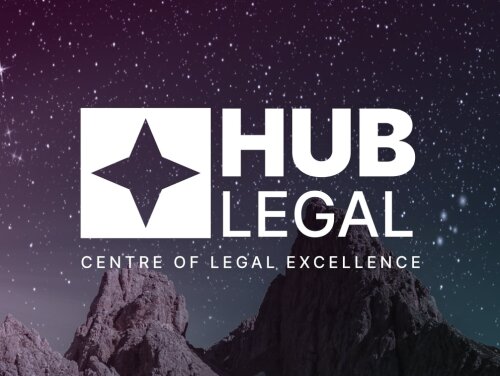Best Climate Change Law Lawyers in Republic of Lithuania
Share your needs with us, get contacted by law firms.
Free. Takes 2 min.
Or refine your search by selecting a city:
List of the best lawyers in Republic of Lithuania
About Climate Change Law in Republic of Lithuania
Climate Change Law in the Republic of Lithuania encompasses the national legislation, regulations, and policies designed to address the challenges posed by climate change. These laws establish frameworks for reducing greenhouse gas emissions, adapting to the effects of climate change, and integrating European Union directives into national policy. The Lithuanian government has committed to both its own climate objectives and those stipulated within the European Union legal system. This legal field impacts sectors such as energy, transportation, industry, agriculture, forestry, and waste management. Lithuania has also ratified international agreements like the Paris Agreement, reflecting its commitment to global climate goals.
Why You May Need a Lawyer
Climate Change Law can be complex because it crosses into various legal domains including administrative, environmental, commercial, and property law. You may need a lawyer if you:
- Are a business owner seeking to comply with emissions regulations or obtain permits for activities impacting the environment
- Face enforcement actions or penalties from regulatory authorities related to environmental performance
- Want to participate in public consultations regarding large infrastructure or energy projects
- Are a member of the public or an organization seeking to challenge a project that may affect local ecosystems or contribute to climate change
- Need guidance on access to climate-related funding or incentives offered by the Lithuanian government or the European Union
- Are involved in disputes regarding land use, water resources, or pollution controls
- Require advice on international climate obligations that affect your operations in Lithuania
Local Laws Overview
Key Lithuanian climate change laws and regulations include the Law on Climate Change Financial Instruments, which establishes the Climate Change Program and funding mechanisms for climate initiatives. The Law on Environmental Protection is the cornerstone of Lithuania’s environmental legal framework and lays down general principles for environmental planning, protection, and sustainable use of resources. The Law on the Management of Greenhouse Gas Emissions establishes a system for emissions trading, aligning Lithuania with the European Union Emissions Trading System (EU ETS). The country also enforces regulations on energy efficiency, renewable energy, and environmental impact assessments. Lithuanian authorities continually update these laws to reflect new EU directives and changing international policy commitments.
Frequently Asked Questions
What is the main legal framework for climate change action in Lithuania?
The Law on Climate Change Financial Instruments and the Law on Environmental Protection provide the main legal foundations for Lithuania's action on climate change.
How does Lithuania comply with global climate agreements?
Lithuania implements measures required by international agreements such as the Paris Agreement and EU directives by enacting relevant national legislation, policies, and targets.
What is the Lithuanian Emissions Trading System?
Lithuania participates in the European Union Emissions Trading System (EU ETS), which caps emissions for certain sectors and allows trading of emission allowances to meet targets.
Who enforces climate change laws in the Republic of Lithuania?
The Ministry of Environment of the Republic of Lithuania and its subordinate authorities are responsible for oversight, permitting, enforcement, and reporting.
What obligations do businesses have under Lithuanian climate laws?
Depending on the sector, businesses may need to apply for permits, report greenhouse gas emissions, adhere to energy efficiency requirements, and implement mitigation measures.
Can individuals participate in environmental decision-making?
Yes, Lithuanian law provides for public consultation and access to information on projects and initiatives that may affect the environment and climate.
Are there financial incentives or funding opportunities?
The Climate Change Program provides funding and incentives for projects promoting renewable energy, energy efficiency, and emissions reductions.
How can investments or developments be challenged on climate grounds?
Individuals and organizations may challenge projects via administrative procedures or litigation if they believe the project violates environmental laws or poses climate risks.
What penalties exist for non-compliance?
Violations of climate regulations can result in administrative fines, orders to suspend activities, or requirements to remedy environmental harm.
How often are climate laws updated?
Given the evolving EU and international climate policies, Lithuanian climate-related laws and regulations are regularly reviewed to ensure compliance with new standards and scientific findings.
Additional Resources
- Ministry of Environment of the Republic of Lithuania (Aplinkos ministerija): The main government body responsible for climate policy and enforcement - Lithuanian Environmental Protection Agency: Carries out environmental monitoring and information dissemination - State Energy Regulatory Council: Regulates energy sector including renewable energy development - Lithuanian Bar Association: To help you find experienced lawyers specializing in climate and environmental law - Environmental NGOs, such as the Lithuanian Fund for Nature, providing advocacy, educational resources, and community support - European Commission Representation in Lithuania for information on EU climate policy implementation
Next Steps
If you require legal assistance concerning Climate Change Law in Lithuania, start by clearly outlining your issue or inquiry. Gather all relevant documents such as permits, correspondence with authorities, or records of environmental impact. Contact a lawyer with experience in environmental and climate change law, either through the Lithuanian Bar Association or professional recommendations. Many legal professionals offer an initial consultation to assess your matter. Consider reaching out to relevant public bodies and organizations for guidance or informational resources. Acting promptly will help ensure your rights are protected and you remain compliant with rapidly evolving climate obligations in Lithuania.
Lawzana helps you find the best lawyers and law firms in Republic of Lithuania through a curated and pre-screened list of qualified legal professionals. Our platform offers rankings and detailed profiles of attorneys and law firms, allowing you to compare based on practice areas, including Climate Change Law, experience, and client feedback.
Each profile includes a description of the firm's areas of practice, client reviews, team members and partners, year of establishment, spoken languages, office locations, contact information, social media presence, and any published articles or resources. Most firms on our platform speak English and are experienced in both local and international legal matters.
Get a quote from top-rated law firms in Republic of Lithuania — quickly, securely, and without unnecessary hassle.
Disclaimer:
The information provided on this page is for general informational purposes only and does not constitute legal advice. While we strive to ensure the accuracy and relevance of the content, legal information may change over time, and interpretations of the law can vary. You should always consult with a qualified legal professional for advice specific to your situation.
We disclaim all liability for actions taken or not taken based on the content of this page. If you believe any information is incorrect or outdated, please contact us, and we will review and update it where appropriate.
Browse climate change law law firms by city in Republic of Lithuania
Refine your search by selecting a city.















